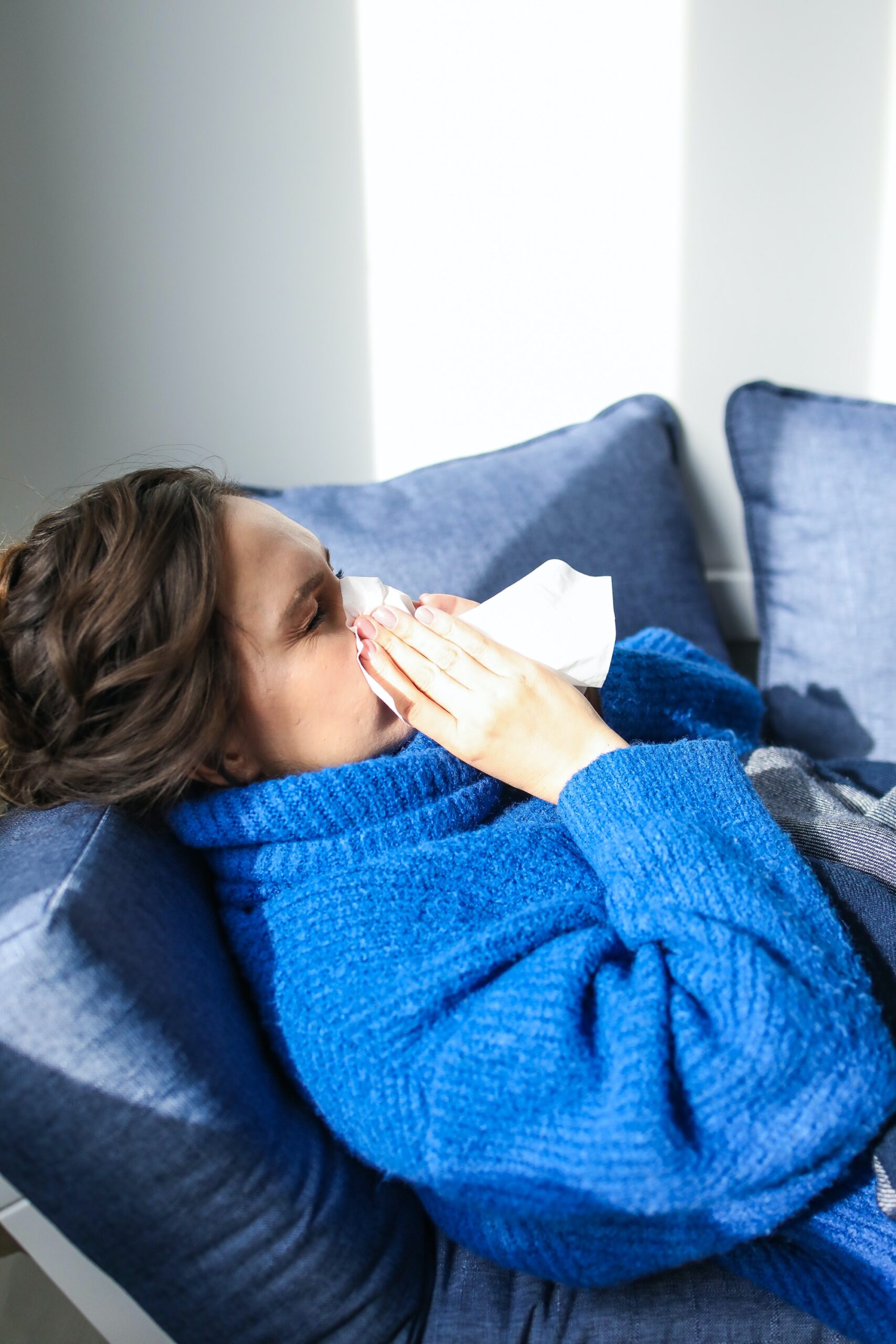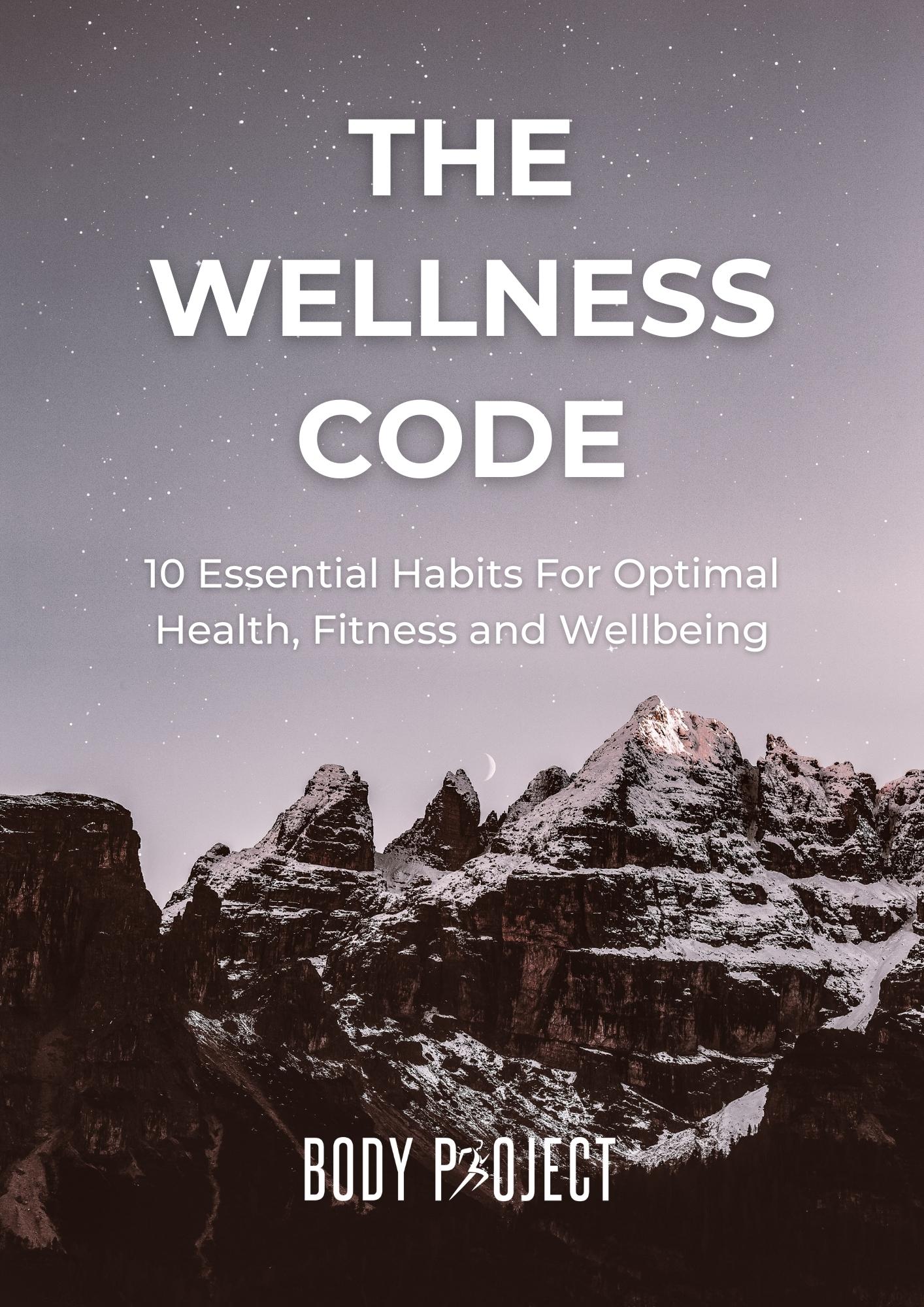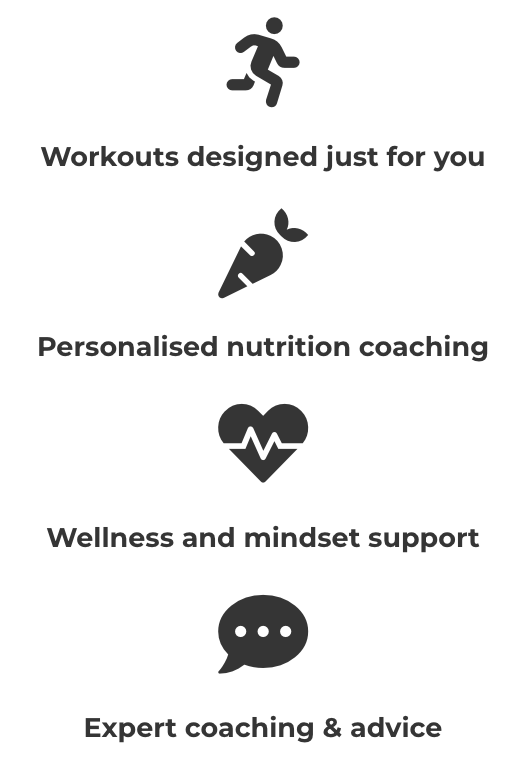Colds, caused by viral infections, are common inflammations of the upper respiratory tract. As we enter the colder months, many wonder how colds affect their training regimen.
We often receive questions like, "Should I exercise while sick?" or "How can I recover faster?" While we're not medical experts, here's some advice based on our experience in wellness and exercise coaching:
How We Catch Colds
To prevent colds, it's essential to understand how they spread. Colds typically arise from contact with infected individuals, and your likelihood of getting sick after exposure depends on various factors. A nutrient-rich diet, stress management, and sufficient sleep enhance your defences. Conversely, if you smoke, lack sleep, or experience high stress, you're more susceptible. That said, even the healthiest individuals can fall ill occasionally. The pandemic highlighted the importance of medical face masks in illness prevention. If visiting crowded, poorly ventilated areas, or someone unwell, it's wise to use this simple protective measure.
Falling ill infrequently or only during breaks (busy people often get sick the moment they take a break) might indicate that your immune system isn't functioning optimally due to stress. Overprotecting your immune system, on the other hand, might leave it unprepared for real threats. A balanced exposure is key.
Myth buster: You can't catch a cold from being cold, going outside with wet hair, or getting caught in the rain.
Can I Exercise With A Cold?
It depends on your symptoms.
It's safe to exercise with:
✓ Blocked or runny nose:
✓ Mild sore throat (without other complications);
✓ Mild coughing/sneezing;
✓ Symptoms that only present above the neck;
✓ Ear congestion;
✓ Watery eyes;
✓ Mild headache.
However, always be cautious and listen to your body. Even if you feel fine to work out, you should still approach exercise mindfully.
When To Avoid Exercise
Avoid exercise if you’re experiencing:
✗ Fever or high temperature;
✗ Chest congestion/tightness;
✗ Shortness of breath;
✗ Muscle aches;
✗ Dizziness;
✗ Severe headache;
✗ Extreme fatigue;
✗ Diarrhoea or stomach upset;
✗ Productive cough;
✗ Severe sore throat.
If these symptoms manifest, consult a doctor. It's advisable to rest until a few days after symptoms subside.
It's essential to remember that individual reactions to illness can vary, and what might be mild for one person can be severe for another. Always listen to your body, and when in doubt, err on the side of caution. If you're unsure or if symptoms persist, consult with a healthcare professional.
Guidelines For Exercising With A Cold
- Opt for mild to moderate intensity workouts.
- Limit your workout to under 45 minutes.
- Focus on health and recovery rather than pushing limits.
- Be mindful of medications' side-effects.
- Constantly reassess how you feel during workouts.
When To STOP Training

If you experience any of the following symptoms during exercise whilst sick, you stop immediately and seek medical advice:
✗ Increased congestion;
✗ Difficulty breathing & shortness of breath;
✗ Coughing or wheezing;
✗ Chest tightness or pressure;
✗ Light headedness or dizziness;
✗ Difficulty standing or balancing;
✗ Loss of vision or hearing.
Can You Sweat Out A Cold?
While moderate-intensity exercise can help prevent illnesses, overtraining without proper recovery can be detrimental. Exercise is beneficial when done within healthy boundaries and with adequate rest in between. Effective programming is essential for this.
Studies have shown evidence of immune suppression in people under stressful conditions. It’s not uncommon for those on extreme weight-loss programmes, athletes who frequently push their physical limits, overwhelmed parents, or overwhelmed working professionals to become unwell easily.
Contrary to some beliefs, neither exercise nor any medical treatment has been shown to reduce a cold's duration. Remember, it's not possible to "sweat out" a cold. Your health should always be the priority.
Search Posts
Free Download
Popular Posts
Discover Online PT
Read More Helpful Articles
Subscribe For New Post Updates
Receive new posts, special offers, discounts, plus exclusive content that we only send out via email.
Don't miss out!







